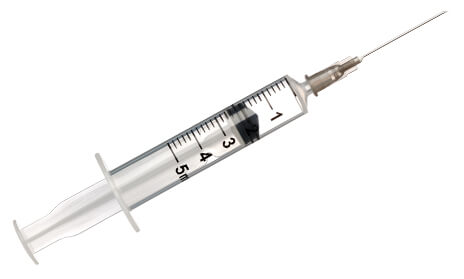Why 2025 Will be a Big Year for Depo-Provera Lawsuits
Editors carefully fact-check all Consumer Notice, LLC content for accuracy and quality.
Consumer Notice, LLC has a stringent fact-checking process. It starts with our strict sourcing guidelines.
We only gather information from credible sources. This includes peer-reviewed medical journals, reputable media outlets, government reports, court records and interviews with qualified experts.

Since this story was published, Depo-Provera lawsuits have been consolidated into an MDL in Florida. Click here to read our latest news story on the Depo-Provera litigation.
Depo-Provera lawsuits are set for a milestone-heavy 2025 following litigation involving the drug from the second half of last year.
New cases continue to be filed over claims that users of the contraceptive injection are at a significantly increased risk of developing benign tumors. These tumors may require surgery to remove and can cause serious adverse health effects.
As the number of filed lawsuits grows, a key step in the litigation is quickly approaching.
Depo-Provera MDL Could be Coming in Early 2025
The number of Depo-Provera lawsuits has grown throughout 2024. Towards the end of the year, plaintiffs filed a motion for those cases to be consolidated into federal multidistrict litigation (MDL).
MDLs group similar cases under one judge, which helps the legal process run more efficiently. A hearing is required for an MDL to be created, and it can sometimes take months to schedule.
But, the U.S. Judicial Panel on Multidistrict Litigation has moved quickly on this case. A hearing is now set for the end of January.
“The JPML setting a hearing to consider the creation of an MDL signals a significant milestone, as it could centralize cases and streamline pretrial proceedings,” Brendan Smith, an attorney with the award-winning firm Simmons Hanly Conroy, told ConsumerNotice. “This helps ensure consistency in rulings, reduces duplicative discovery and generally makes it more efficient for both plaintiffs and defendants to navigate the litigation.”
Pfizer, who manufactures Depo-Provera, has agreed that an MDL should be created. Given the nature of the litigation, approval for this MDL seems likely.
But, the hearing will need to sort out where the MDL will be placed, with conflicting options on the table.
Plaintiffs are pushing for the Depo-Provera cases to be consolidated in California. This could be key, as innovator liability would allow those who took generic versions of Depo-Provera to still bring legal action against Pfizer.
“[Depo-Provera] has also been made by generic manufacturers for more than twenty years, selling typically at a lower price,” the plaintiffs’ motion stated.
Also working in the plaintiffs’ favor is that many Depo-Provera lawsuits have already been filed in California. The original MDL motion included 22 lawsuits, 18 of which were filed in the state.
Pfizer, however, is lobbying for the MDL to be placed in its home state of New York, which does not have innovator liability. So, those who got generic versions of Depo-Provera likely could not participate in the New York lawsuits.
“Pfizer is the only defendant that is named in every case, and as the innovator of the product, appears to be the main defendant in the litigation,” the defendants said in their response. “Pfizer is headquartered in New York City, and at least one other defendant is close by.”
The MDL hearing is scheduled for Jan. 30.
Depo-Provera Lawsuits Likely to Keep Growing
Regardless of where the eventual Depo-Provera MDL is consolidated, lawsuits are likely to continue to grow through 2025. This is due to the wide range of potential plaintiffs who may have been impacted.
According to the Centers for Disease Control and Prevention, about 25% of all sexually experienced women have used Depo-Provera at some point.
Lawsuits stem from a study published in the British Medical Journal last March suggesting a significant link between prolonged Depo-Provera usage and the development of meningiomas.
Meningiomas are tumors that form in the membranes around the brain and spine. They are generally benign but can still cause serious health issues and may require surgery to remove.
The study determined that Depo-Provera users had as much as a 5.6-fold higher risk of developing meningiomas.
Lawyers continue to investigate and accept new cases as the litigation expands.
Editor Lindsay Donaldson contributed to this article.